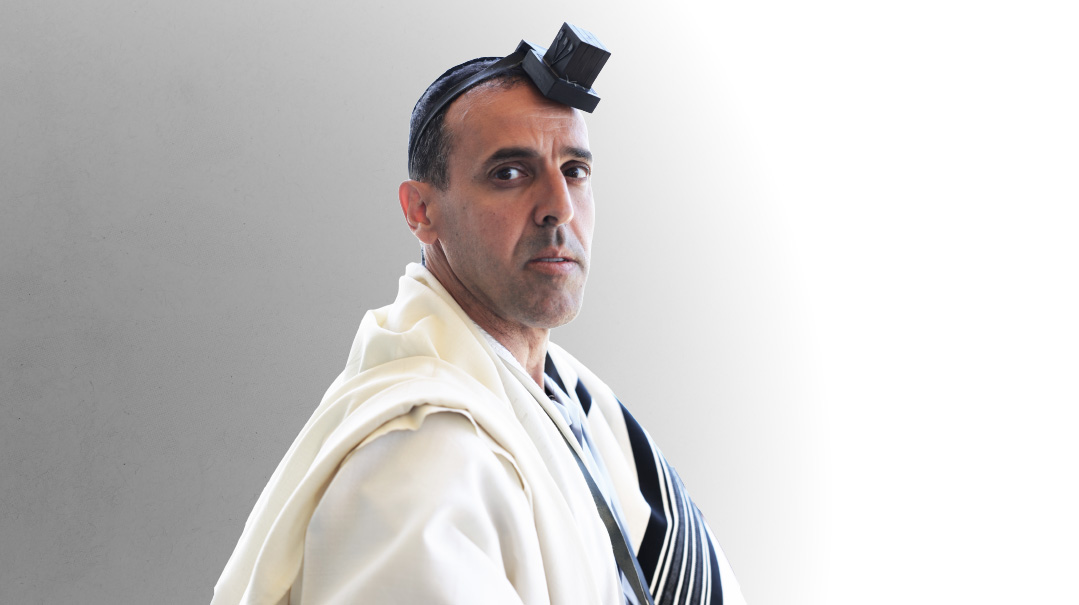Choose Life
| June 10, 2025Chained in a Hamas dungeon, freed hostage Eli Sharabi knew he was never truly captive

Photos: Elchanan Kotler, Menachem Kalish
Eli Sharabi didn’t choose the massacre, didn’t request that his family be slaughtered, and didn’t ask to be kidnapped. But there was one choice he knew he could still make, even as he was doubled over in pain, chained and shackled, deep in the bowels of a Hamas dungeon. He could stand on the side of humanity, compassion, and faith, and when that happened, he knew he was never truly captive
Four hundred and ninety-one days — of hope buried dozens of meters underground, in the shadow of the dregs of humanity. Of waking up every morning to an unfathomable reality. And then, an entire nation watched as hostage Eli Sharabi returned to an excruciating present of pain and loss.
But whoever thought that Hamas’s cynical stage — where Eli Sharabi was forced to accept some “souvenirs” in advance of his release on February 8 — would frame the freed hostage’s future, it turns out that the Eli Sharabi we meet this week is far from broken. And the more we learn about the vast pain and grief he has endured, the greater the admiration for the spiritual strength, determination, gratitude, and forward-focused perspective of this eternal optimist.
Sharabi, 53, was abducted from his home in Kibbutz Be’eri on October 7, 2023, during Hamas’s onslaught. His wife, Lianne, and daughters Noya, 16, and Yahel, 13, were murdered soon afterward. His brother Yossi was also kidnapped and later murdered by his captors, who are still holding his body.
Sharabi only found out about the murder of his family after stepping into the Red Cross vehicle that would finally take him to safety. “I imagined my wife and girls running to me,” he says of one of his most shattering moments. “But of course, that didn’t happen. Still, I’m glad I didn’t know they were dead. Because thinking that I would return to them is what kept me going through every horrible day in captivity.”
In the four months since he’s been free, the people of Israel and beyond have gotten a glimpse of Sharabi’s extraordinary inner resilience. This is a man who emerged from gehinnom into the greatest grief imaginable and chose to continue living with vigor, faith, and optimism. He moved hearts when he spoke of how his connection to G-d sustained him in captivity — how he recited the Shema, how he made Kiddush on Friday night inside the horror, and how, despite excruciating hunger, he refused to read verses from the Koran in exchange for a little extra food.
“Everything in life is a choice,” he explains, offering all of us a glimpse of the mindset that allowed him to survive under the bleakest conditions and still make every day meaningful. “You know, from the moment I was free and realized my loss, I could have sunk into despair and just let the grief consume me. I could have chosen to stay under the covers all day and cry. But where would that have gotten me? It certainly wouldn’t have given me the strength to move forward. Instead, I look for places that give me strength, and I find that strength in family, in friends, in faith, in putting on tefillin every morning. And I’ve chosen to live again.”
Oops! We could not locate your form.







